Today’s question: can dogs eat beets? Are beets good or bad for dogs? Scroll down for detailed answers.
If you were to set apart the people in this world based on animal preferences, you would most likely notice that most of them would be either dog lovers or cat lovers. However, the first category seems to be the most widespread, as the dog is and always will be, a man’s best friend. This is the reason why every dog owner should pay attention to his/her pet’s behavior at all times and notice every change that might interfere with its well-being.
In order to have a dog that is both healthy and happy, you need to provide him/her with extra care and offer them a well-balanced lifestyle and diet. Diet should consist of meat sources, but with veggies being so important for humans to consume, we must ask whether dogs should eat veggies as well. For example, have you ever wondered: can dogs eat beets?
If that question has crossed your mind, then you have come to the right place. In this article, we are going to focus our attention on whether dogs should eat beets and we will also talk about what dogs can eat on a daily basis.
Can Dogs Eat Beets or Are They Dangerous for Them?
If you own a dog, then there is a great chance that the question of whether dogs can eat beets has crossed your mind at least once. So, can they eat beets or not?
We all know that beets are on the top of the healthy foods list. Some people love them, others not so much but in any case, beets have always been considered to be a super-food. However, they might be good for humans, but are they really good for dogs?
According to ASPCA, beets are non-toxic to dogs, cats, and horses. The truth is that dogs can eat beets from time to time, but feeding them this food everyday does not really do much for them.
If you happen to have some leftover beets from last night’s dinner and do not really know what to do with them, you can easily feed them to your dog. Being nontoxic, and relatively soft in texture, beets will not pose a choking risk for your dog. The lack of toxins in the beet will also alleviate any concern you may have for a dog ingesting harmful chemicals. The beets will not cause any harm should you choose to offer them to your pet. However, keep in mind that you do not have to make a habit out of this. Dogs should not eat beets regularly. Occasionally dogs may eat beets you have cooked, or on special days such as Thanksgiving.
Adding vitamins and nutrients to the diet of your dog is a personal preference of the owner. Some owners choose to add colors of veggies to their dog’s diet to mirror their own veggie intake. Others may see the purpose of the dogs eating beets or other veggies, as simple treats to offer as rewards. However you choose to offer the food to your dog is important to the well-being and overall health of him/her. Discussing the topic of offering human foods to your pet is important to have with your vet before you actually give the food to your dog.
People who love beets also benefit from the high vitamin content of the food. Dogs may also benefit greatly from the added vitamins and nutrient from the beet! Beets are filled with iron, and sometimes it is believed that feeding them to dogs might increase their iron level. If your dog has low iron, is at risk of being anemic, or will be in surgery soon, you may wish to offer a bit of beets with his/her dinner to help offset any potential iron loss. However, keep in mind that no action should be taken without the veterinarian recommendation. S/he should be the one diagnosing the dog. If your dog is suffering from an iron deficiency, the vet will prescribe the necessary medication and maybe even tell you to give him some beets. Whether you choose to offer supplements, medicine, or beets, your vet will best guide your thought process for the best results.
Some people see beets as a natural supplement that should be added to the dog’s diet. However, your canine companion is going to be just fine as long as s/he is getting quality food every day. The kibble your dog eats has all the essential vitamins and nutrients for a healthy diet. Most dogs do not require added vitamins to their diet and are perfectly nourished through dog food.
Many dog owners may argue that their dog needs a variety of foods to eat each day. Even though we, as humans, would definitely get bored of eating the same type of food every single day of our lives, for dogs, things are a bit different. They eat to be able to live and carry on the ongoing process of survival, so they do not really need a lot of variation and diversity in the department of food. Dogs do not have the need for variety and tastes in their diet. Dogs find simple pleasure in being fed. Dogs have evolved to prefer meat sources as food, but this as far as their preferences should be considered.
Many human foods can cause problems in dogs, for many unique reasons. Shells, cores, pits, seeds, and casings are all harmful to your dog and potentially deadly. Other foods may have hidden toxins within them and can also be fatal if consumed. Beets are not really known to cause any problems in dogs. You can safely give your dogs fresh or cooked beets from time to time as treats. Keep in mind that not all foods that are known to be healthy for humans will have the same effect on dogs.
Beets are not a food that your dog cannot live without. Beets a wonderful addition to the diet of your dog, in moderation, but beets are not necessarily a food your dog will need to survive. Think about it this way, if your dog was allowed to run free in the wild and see some beets in the neighborhood, s/he would surely not go and dig them up. Dogs do not hunt, seek, and find beets in their native habitats, or even within their neighborhoods when domesticated. This is another reason why there is no need for you to introduce the beet in his/her diet.
Introducing the beet to your dog may reap healthy rewards for your dog, but you must ask a vet before serving to your dog. Offering beets may also be a good way to utilize the leftovers you have going to waste. However, if you do not wish to offer beets to your dog, s/he will be fine. The veggie is not a necessary component to their diet.
Can Dogs Eat Canned Beets
Canned beets are not recommended for dogs. Usually canned beets or any other canned vegetables contain a quite a bit of preservatives and salt, and dogs cannot eat too much salt. Too much salt can lead to kidney problems, and a dog could even die from consuming excess of salt. High levels of sodium in food also raise a dog’s blood pressure.
Over time, a dog ingesting canned foods high in sodium can lead to serious health issues. Another danger of canned food is the lack of knowledge as to what is actually in the food. A locally grown beet bought from a farmer will be much safer for your pup to eat than a canned version. Even better is a beet you grew yourself in your yard! Adding preservatives to your diet, or the diet of your pup, is never a good idea when fresh options are available.
Can Dogs Eat Beet Pulp
Yes, dogs can eat beet pulp, but in moderation only. Beet pulp is often found in many quality foods, but the actual amount eaten per day is quite small. That means when fed correctly to your dog, this can be an excellent ingredient that can be beneficial to your pet.
Some Thoughts on Your Dog’s Food
There are many companies on the market that are known to place all kinds of ingredients in the food that is aimed to reach your dog’s stomach. The logic behind added ingredients may cause dog owners to believe that when human foods are added to dog food, the particular dog food is now healthy.
The result of this belief shows that the pet owners may consider their human food as a top-quality food and extremely beneficial to their much loved dogs. Adding human food seems like a good idea at the time, but if human food is offered to your dog on a regular basis, a host of issues can arise. Your dog may also become a finicky eater, preferring human food over dog food know that s/he is aware there are choices in the area of food.
However, the reality of human food being healthier than dog food is completely different. On a dog food label, all the vegetables and grains that are displayed at the top of the list with all the ingredients in the low-grade dog foods are only fillers. What does this mean? That they might not hurt your dog, but they are certainly not making any favors to him either. The diet of all canine’s should contain about 25% of veggies, 25% bones, 50% meat.
At least 50% of your dog’s veggies should be green leaves. Leafy vegetables resemble grasses and other greens that wild animals eat. They are full of minerals, vitamins, antioxidants, fiber, and contain cleansing and pH balancing properties. Great examples are dandelion leaves, parsley, cilantro, carrot tops, kale and beet tops. Your dog needs protein from a meat source to survive, but your dog also requires a bit of veggie in their diet. Dog food contains veggies, but not the high quality of veggies you may grow at home or buy at the store. Offering occasional whole foods into your dog’s kibble may help boost their vitamin content and balance their diet.
Conclusion
Coming back to the original question, yes dogs can eat beets occasionally. However, try to rely only on high-quality fresh food. If you have the extra time, just cook for your beloved pet. Remember that dogs can eat beets, but try not to fill them up with this type of food that is not really providing them the much needed nutrients. Dogs do not need beets for nourishment, only as a treat.
Additionally, when you start adding new foods to your dog’s diet, do it gradually and in small amounts. Observe your pet afterwards. If you notice any stomach discomfort or diarrhea, stop feeding him the food. Only offer small pieces of beets at first. Offering small amounts will allow your dog a taste and allow you time to discern whether your dog is able to tolerate the food.
Related articles:
References:
http://aboutdoggies.net/can-dogs-eat-beets/
https://www.aspca.org/pet-care/animal-poison-control/toxic-and-non-toxic-plants/beets
http://peterdobias.com/blogs/blog/11014993-what-veggies-are-good-for-dogs

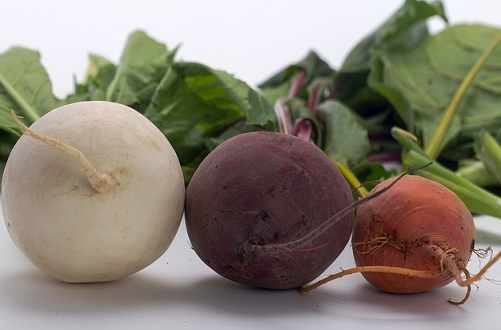
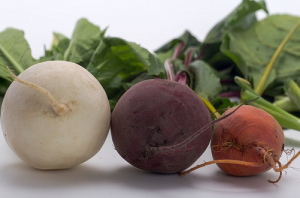


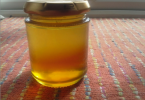
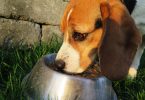
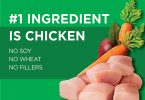

Leave a Comment